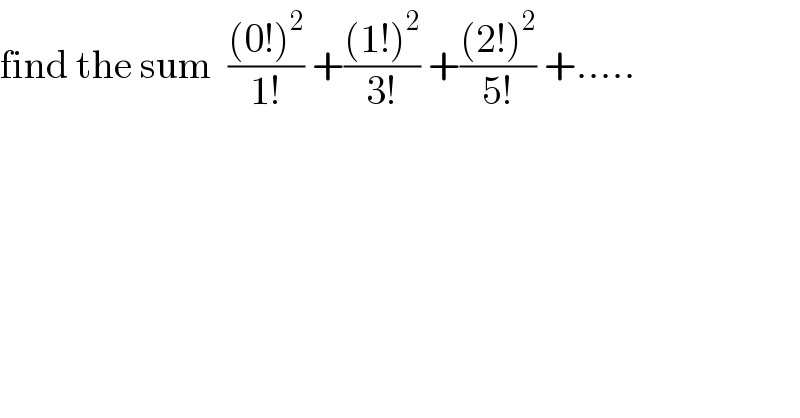
Question and Answers Forum
Previous in Relation and Functions Next in Relation and Functions
Question Number 143846 by mathmax by abdo last updated on 18/Jun/21

Answered by Ar Brandon last updated on 18/Jun/21
![(((n!)(n!))/((n+n+1)!))=((Γ(n+1)Γ(n+1))/(Γ(2n+2)))=β(n+1, n+1) S=(((0!)^2 )/(1!)) +(((1!)^2 )/(3!)) +(((2!)^2 )/(5!)) +∙∙∙=Σ_(n=0) ^∞ β(n+1,n+1) =∫_0 ^1 Σ_(n=0) ^∞ x^n (1−x)^n =∫_0 ^1 (1/(1−(x−x^2 )))dx =∫_0 ^1 (dx/(x^2 −x+1))=∫_0 ^1 (dx/((x−(1/2))^2 +(3/4))) =[(2/( (√3)))arctan(((2x−1)/( (√3))))]_0 ^1 =(2/( (√3)))((π/6)+(π/6))=((2(√3)π)/9)](Q143854.png)
Commented by mathmax by abdo last updated on 19/Jun/21

Commented by Ar Brandon last updated on 19/Jun/21

